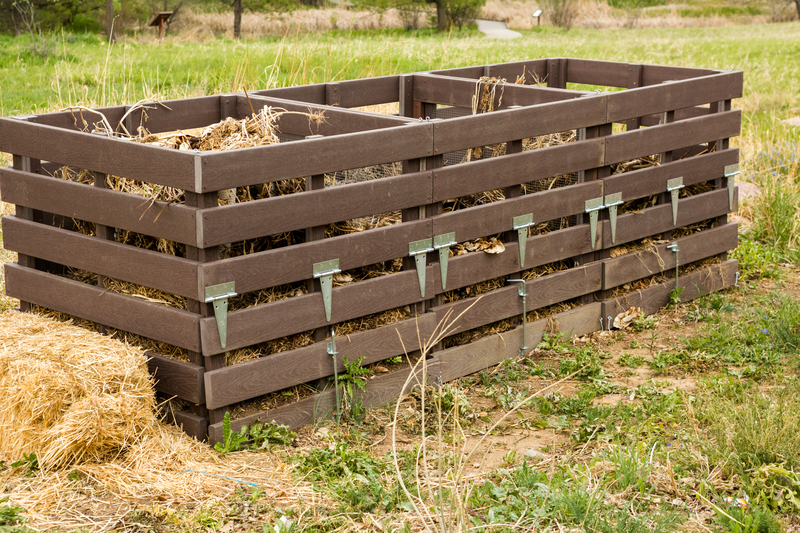Effective Strategies to Lower Plastic Waste
Plastic waste has become one of the most pressing environmental challenges of our time. With the world producing over 300 million tons of plastic every year, much of which ends up polluting our landfills, oceans, and waterways, it's crucial to find sustainable and effective solutions to reduce this mounting problem. In this comprehensive guide, we'll explore effective strategies to lower plastic waste, offering practical tips, actionable insights, and a deeper understanding of how individuals, communities, and industries can make a positive impact.

Understanding the Problem: The Impact of Plastic Waste
Plastic pollution not only affects wildlife and ecosystems but also poses risks to human health and economies. When plastic breaks down, it forms microplastics which can be ingested by animals and humans alike, with unknown long-term effects. Additionally, the manufacturing and disposal of plastics contribute to greenhouse gas emissions, further exacerbating climate change. Recognizing the significance of this issue is the first step toward implementing plastic waste reduction strategies.
The Main Sources of Plastic Waste
- Single-use plastics (bags, bottles, straws, food wrappers)
- Packaging materials used in retail and e-commerce
- Household products (toiletries, cleaning products, and packaging)
- Industrial and agricultural plastics
- Fishing gear and marine equipment
Reduce Plastic Waste: The Golden Rule
The most effective way to lower plastic waste is to prevent it from being created in the first place. Across the globe, individuals and organizations are embracing the "reduce, reuse, and recycle" mantra, but the order of these actions is paramount. Reduction is always the most beneficial option, as it avoids unnecessary plastic entering the waste stream altogether.
1. Rethink Your Consumption
Before purchasing products, consider alternatives that use less plastic or none at all. Look for refillable containers, bulk goods, and items with minimal packaging. Some ideas to get started include:
- Choose products packaged in glass, metal, or cardboard, as these materials are more easily recycled or composted.
- Buy in bulk to minimize individual packaging waste.
- Bring reusable bags, bottles, coffee cups, and containers whenever you shop or dine out.
- Say no to single-use plastics such as straws, cutlery, and polystyrene foam containers.
2. Support Businesses with Sustainable Initiatives
Support companies that are making genuine efforts to lower plastic waste through innovation and eco-friendly business models. Some examples include:
- Shops offering zero-waste product options or bulk bins
- Brands that use compostable, biodegradable, or easily recyclable packaging
- Restaurants and cafes providing reusable or returnable containers
- Retailers engaged in plastic take-back or recycling programs
When you vote with your wallet, you encourage more businesses to implement similar plastic reduction strategies.
Reuse and Repurpose: Extending Product Life
Reusing plastic items helps to extend their life, reducing both the immediate waste and demand for new plastics. Here are practical ways to incorporate reusability into daily life:
DIY Projects and Creative Uses
- Repurpose plastic containers for storage, organization, or planters
- Upcycle bottles into art projects, bird feeders, or garden tools
- Use sturdy shopping bags or jars as alternatives to disposable options
Embrace a Circular Economy Mindset
Engage in community swap events, garage sales, and donation programs to keep usable plastics out of landfills. Embracing circular economy practices--where products and materials are kept in use for as long as possible--can dramatically lower plastic waste at a community scale.
Recycle Right: Improving Collection and Quality
While recycling isn't the sole solution to the plastic waste crisis, it's a crucial part of the puzzle. Not all plastics are recyclable, and contamination can lead to entire batches being sent to landfill. To recycle effectively:
Know What Can Be Recycled
- Check local recycling guidelines for accepted plastic types (typically PET, HDPE, PP, etc.)
- Clean and dry plastic containers before placing them in the recycling bin
- Avoid "wish-cycling" by not putting non-recyclable items in recycling bins
Support Innovations in Recycling
Advances in chemical recycling, mechanical recycling, and biodegradable plastics are offering hope for the future. Stay informed and support initiatives that promote advanced plastic recycling and upcycling technologies.
Advocate and Educate: Spreading Awareness
Lowering plastic waste requires collective action. Raising awareness within your community and advocating for policy changes can amplify the impact beyond individual actions. Here's how you can make a difference:
Community Campaigns and Clean-Ups
- Organize or join local beach, river, or park clean-up events
- Host educational workshops on the impact of single-use plastics
- Promote zero-waste challenges at schools or workplaces
Policy Change and Corporate Accountability
- Support bans or fees on single-use plastics in your area
- Petition for improved recycling infrastructure
- Encourage transparency and responsibility from corporations about their packaging practices
Education is key to shifting behavior and sustaining long-term progress toward reducing plastic waste globally.
Innovative Solutions and Alternatives
Addressing plastic pollution requires innovation in materials and practices:
Biodegradable and Compostable Plastics
- Seek out products made from plant-based or biodegradable alternatives where practical
- Understand proper disposal requirements, as some compostable plastics still require industrial composting facilities
Refillable Systems and Bulk Buying
- Many stores now offer refill stations for household cleaners, shampoo, and food staples
- Bringing your own containers can significantly reduce dependence on plastic packaging
Choosing alternatives and supporting businesses that make these options available helps to shift market demand and drive systemic change.
Tips for Lowering Plastic Waste at Home
Adopting a more sustainable lifestyle at home can dramatically decrease your personal contribution to plastic waste. Here's a checklist to get you started:
- Use reusable produce bags, lunchboxes, and cutlery
- Switch to bar soap and shampoo bars instead of bottled liquids
- Make your own cleaning solutions using vinegar and baking soda to reduce plastic bottles
- Choose loose or unpackaged fruit and vegetables at the supermarket
- Compost food scraps to avoid the need for plastic bin liners
- Repair and repurpose items whenever possible, instead of buying new ones
Plastic-Free Grocery Shopping
Shop at local farmers' markets, bring your own bags and containers, and select brands that commit to minimal or plastic-free packaging. Over time, these daily habits become second nature, reinforcing your commitment to plastic waste reduction.
Reducing Plastic in the Workplace and Schools
Offices and educational institutions generate significant plastic waste. Fortunately, many effective strategies exist to lower plastic waste in these environments:
- Install water fountains and encourage the use of refillable bottles
- Offer reusable dishware and utensils in cafeterias and break rooms
- Implement green procurement policies to choose suppliers with sustainable packaging
- Promote digital notes and memos to reduce plastic stationery
- Run awareness campaigns and incentivize participation in waste reduction initiatives
Global and Industry-Wide Solutions
The Importance of Policy and Regulation
Governments play a critical role in driving large-scale reductions in plastic waste. Regulations--including the banning of certain single-use plastics, extended producer responsibility, and investment in waste management infrastructure--are powerful tools for systemic change.
Corporate Responsibility and Eco-Design
- Companies can design packaging with recyclability in mind (mono-materials, minimal ink/labels, easy separation)
- Incorporate recycled content into new products, closing the plastic loop
- Participate in take-back and closed-loop recycling programs
International Cooperation
Tackling plastic waste on a global scale requires international action. The United Nations and other organizations are developing frameworks to limit plastic production, improve global recycling rates, and stop plastic from entering our oceans.

Challenges and Limitations in Reducing Plastic Waste
While significant progress has been made, there are still substantial barriers to drastically lowering plastic pollution:
- Lack of standardized recycling systems and limited recycling markets
- Confusion among consumers about recycling and composting protocols
- Persistent availability and convenience of single-use plastics
- Economic factors that make plastic alternatives more expensive or less accessible
Overcoming these hurdles will require innovation, policy changes, public engagement, and ongoing education. Every small step, however, contributes to the larger goal of a cleaner, healthier planet.
Conclusion: Taking Action to Lower Plastic Waste
By understanding the impact of plastic pollution and committing to effective strategies to lower plastic waste, we can each play a vital role in fostering a sustainable future. Whether you're making simple changes at home, supporting sustainable businesses, partaking in policy advocacy, or promoting innovation, your efforts will help to inspire others and create ripple effects throughout society. Remember--reducing plastic waste is not just an environmental obligation, but an opportunity to create a better world for ourselves and future generations. Start today, and lead by example in the movement to lower plastic waste.
Together, we can turn the tide on plastic pollution.